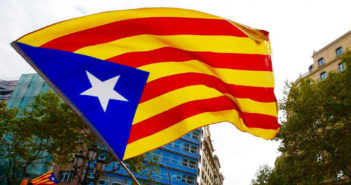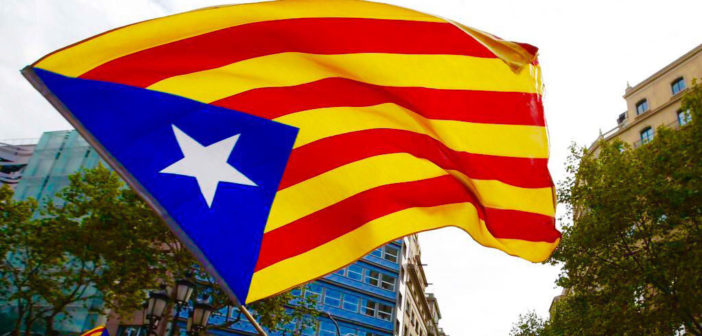
Catalonia’s flag has a different design from Spain’s to represent the countries’ distinction from one another
Credit:@wikimediacommons
In order to understand the situation in Spain, it’s important for one to know what Catalonia is and who it’s people are, what they have endured under Spanish rule for centuries, and why they are demanding independence from an objectively modern, secular, and advanced western power.
Historical research conducted by Joan Costa Carreras, Alan Yates, Pompeu Fabra, John H. Elliot, Paul Preston, who are just a fraction of the researchers who have evidence and knowledge of the region, have been studying and writing books about Catalonia for decades. The following information is conclusive research and evidence conducted by these historians.
Catalonia, as it exists today, is a semi-autonomous region of the Kingdom of Spain, meaning they have their own representative body elected by the people (like the United States Congress) with a president, but are still under the control of the central government of Spain in Madrid. They have their own language, a blend of Latin, Spanish, and French, called Catalan.
Historians claim the region has exchanged hands between various European powers for centuries, including the Roman Empire, France, Al-Andalus (the Muslim kingdom situated in what is now Spain), and Spain itself, to name a few. For a little while, it was also an independent country, named the Kingdom of Aragon, which expanded its influence across the Mediterranean, even going so far as to capturing southern Italy and the islands of Sardinia and Corsica. During its brief period as an independent kingdom, Catalonia experienced an intense cultural explosion with songs, books, and prose being written by Catalans, resulting in a strong Catalan culture and language.
Eventually, the King of Aragon, the famous Ferdinand II, married the Queen of the neighboring country of Castile, the also famous Isabella, joining the two crowns together to create the Kingdom of Spain. Together, they helped fund Columbus’ journeys to the Americas and established a colonial empire based on their conquests in the New World of North and South America. Despite being an equal partner of two in creating the modern nation of Spain, the Catalan people and the region as a whole began to lose a series of wars after failed revolts. They were in opposition to the Spanish crown after subsequent Spanish kings continued to centralize their power, creating an absolute monarchy, leaving the other regions of Spain, including Catalonia, with virtually no power at all.
Subsequent wars and conflicts only continued to strip Catalonia of power and autonomy until eventually Francisco Franco and his fascist policies, after winning against the government of Spain in the Spanish Civil War of 1936 to 1939, instituted brutal, immoral, and devastating reforms across all of Spain. Franco insisted on linguistic unity, meaning the Spanish language should be the only one spoken in Spain, resulting in the Catalan language became outlawed. Additionally, future demonstrations of Catalan nationalism among other things, including meeting together to discuss Catalonia, forming opposition parties to the Fascist government, as well as simply publishing books or articles about Catalonia, became outlawed.
After Franco’s death in 1975, the many regions of Spain came together to form a new constitution for the new Kingdom of Spain. Catalonia, among other regions, regained a large degree of autonomy, eventually being granted the right to have their own elected body and president.




